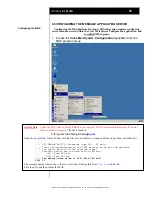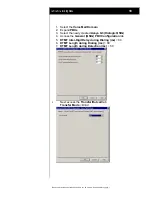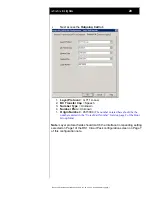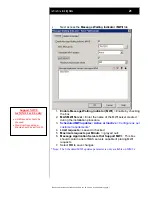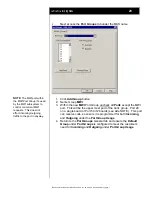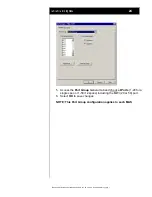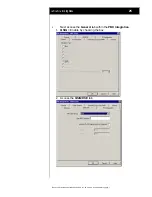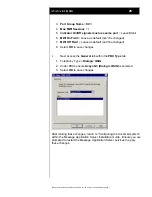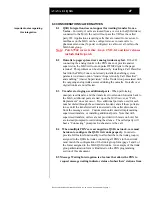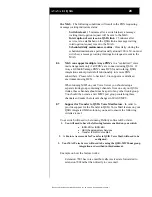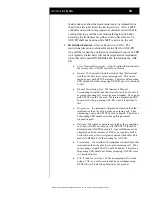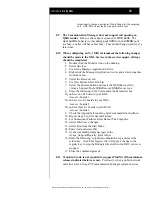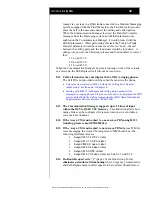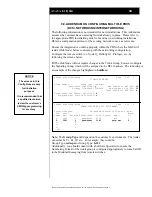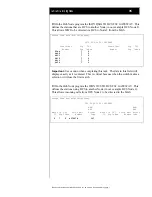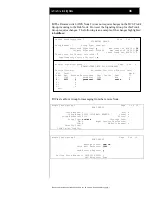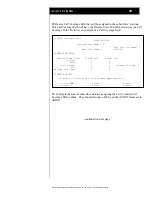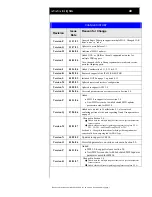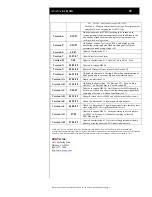
AVAYA E1/QSIG
30
The above information is provided by AVAYA Inc. as a guide. See disclaimer on page 1
feature does not allow the trunk resources to be released from
the switch-side to facilitate the tracing activity. Also, a MCT
controller on switch A may request a controller on switch B to
continue tracing a call that was tandem through switch B by
providing the trunk member id they wish to have traced. So,
ANF-PR shall not be done while MCT is active on the call.
Restriction Features. Class of Restriction (COR).
The
restrictions placed on routing calls are in affect for ANF-PR.
Any call that cannot be originated or terminated because of COR
on a regularly dialed basis will not be originated or terminated
when that call is made ON BEHALF OF that terminal by ANF-
PR.
•
Voice Terminal Restrictions.
Voice Terminal Restrictions for
the reroute of an ANF-PR call will be enforced.
•
Inward.
If a terminal is Inward restricted then that terminal
would not be able to accept an incoming call. This would
include a new path SETUP message. Therefore a Requesting
PBX should not bother proposing ANFPR, since it is destined
to fail.
•
Manual Terminating Line.
If a terminal is Manual
Terminating restricted then that terminal would not be able to
accept an incoming call except from an attendant. Thus a new
path SETUP would be denied. Therefore a Requesting PBX
should not bother proposing ANF-PR, since it is destined to
fail.
•
Origination.
If a terminal is Origination restricted then that
terminal would not be able to make an outgoing call. Thus
originating a new path SETUP should be denied. Therefore a
Cooperating PBX should reject the path replacement
proposal/request.
•
Outward.
If a station is outward restricted at the cooperating
end of an ANF-PR call then no ANF-PR SETUP should be
attempted and ANF-PR should fail. Any call that cannot be
originated outward (because of COR) on a regularly dialed
basis will not be allow to originate outward when that call is
made ON BEHALF OF that terminal by ANF-PR.
•
Termination.
If a terminal is Termination restricted then that
terminal would not be able to accept an incoming call. Thus
an incoming new path SETUP would be denied. Therefore a
Requesting PBX should not bother proposing ANF-PR, since
it is destined to fail.
•
TAC (Trunk Access Code).
When an outgoing call is made
using a TAC, or a call was extended by an attendant using
DTGS (Direct Trunk Group Selection), the user has

